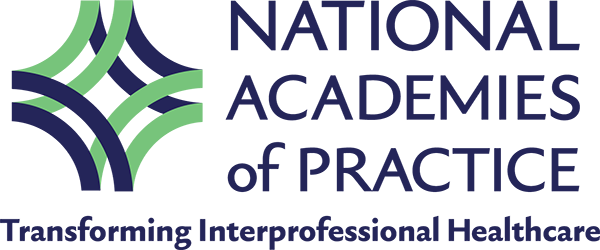Athletic Trainers as Part of the Interprofessional Concussion Management Team
March is National Athletic Training Month, and the Athletic Training Academy is excited to share information about our role as part of an interprofessional concussion management team. While athletic trainers do not work solely with athletes, here we will highlight our role in the management of sport-related concussion. In accordance with the 6th International Conference on Concussion in Sport, we will discuss our role using the 12 ‘R’s of sport-related concussion.
Recognize: Athletic trainers (ATs) are frequently the first healthcare provider to identify a patient suffering from a sport-related concussion (SRC). We are often on the field or court with the patient when the injury occurs. The pre-existing relationships ATs have with their patients facilitate trust and allow us to better evaluate whether there are changes in mood or behavior. Athletic trainers recognize SRCs and work with other healthcare providers to manage the patient’s recovery.
Reduce: Athletic trainers, often in collaboration with physicians and other healthcare providers, engage in writing concussion policies and influence sport rules to improve safety. We also educate athletes, families, coaches, and the public about SRCs. Athletic trainers are involved in ensuring proper fit of protective equipment including helmets and mouthguards, and work with dentists to provide custom mouthguards. Finally, athletic trainers are involved in the initial and follow-up concussion management, an important secondary prevention strategy.
Remove: The most likely healthcare provider to be on-site in the case of a SRC is the AT. We will conduct the sideline evaluation and if a concussion is suspected, remove from play. In the case of a medical emergency, ATs work with emergency medical services for transport to the emergency department.
Re-Evaluate: A more comprehensive evaluation will take place post-event or the following day by the AT or other healthcare provider, such as a physician, physician assistant, or nurse practitioner. This more thorough evaluation will inform the treatment plan.
Rest and Exercise: Athletic trainers who work in sport settings are on-site with the patient and can educate and monitor cognitive and physical activities, including subthreshold exercise, that aid in recovery.
Refer: Athletic trainers refer patients suffering from SRCs and prolonged symptoms to other healthcare providers, as needed. In some states, all patients suffering from SRCs are required to see a physician. Athletic trainers may also refer to and collaborate with physician assistants, nurse practitioners, neuropsychologists, physical therapists, occupational therapists, speech-language pathologists, audiologists, and optometrists in the management and care of patients with SRCs.
Rehabilitation: Athletic trainers can implement vestibular or cervicovestibular rehabilitation, and often work in collaboration with physical and occupational therapists to provide this.
Recovery: Athletic trainers, who see their patients daily, are able to conduct follow-up evaluations via symptom reports, vestibulo-oculomotor screening, cognitive assessments, dual task assessments, and exercise tolerance tests. We communicate the results of continuous assessment to other managing healthcare providers.
Return-to-Learn and Return-to-Sport: Once all collaborating healthcare providers agree the patient is ready, ATs help provide a safe return-to-learn and return-to-sport. In the case of return-to-learn, ATs work with school personnel, such as nurses, teachers, and administrators, to provide a stepwise return-to-learn progression. ATs also oversee the stepwise return-to-sport progression.
Reconsider: Athletic trainers provide patient education regarding potential long-term effects of SRCs so patients and their families can make an informed choice about continuing to participate.
Retire: Athletic trainers also engage in discussion with patients, families, and other medical providers when retirement from a sport is considered.
Refine: Athletic trainers continue to engage in research to expand our knowledge of sport-related concussion.
Given the wide range of symptoms and function impairments following a concussion, care provided by an interprofessional team will most likely give each patient the best chance for a positive outcome. We hope that this brief outline of the various roles and responsibilities ATs can assume when caring for a patient recovering from a SRC will encourage all NAP members to connect with ATs in their communities when faced with a patient recovering from an SRC.
Reference
Patricios JS, Schneider KJ, Dvorak J. Consensus statement on concussion in sport: the 6th international conference on concussion in sport - Amsterdam, October 2022. Br J Sports Med. 2023;57:695-711.

